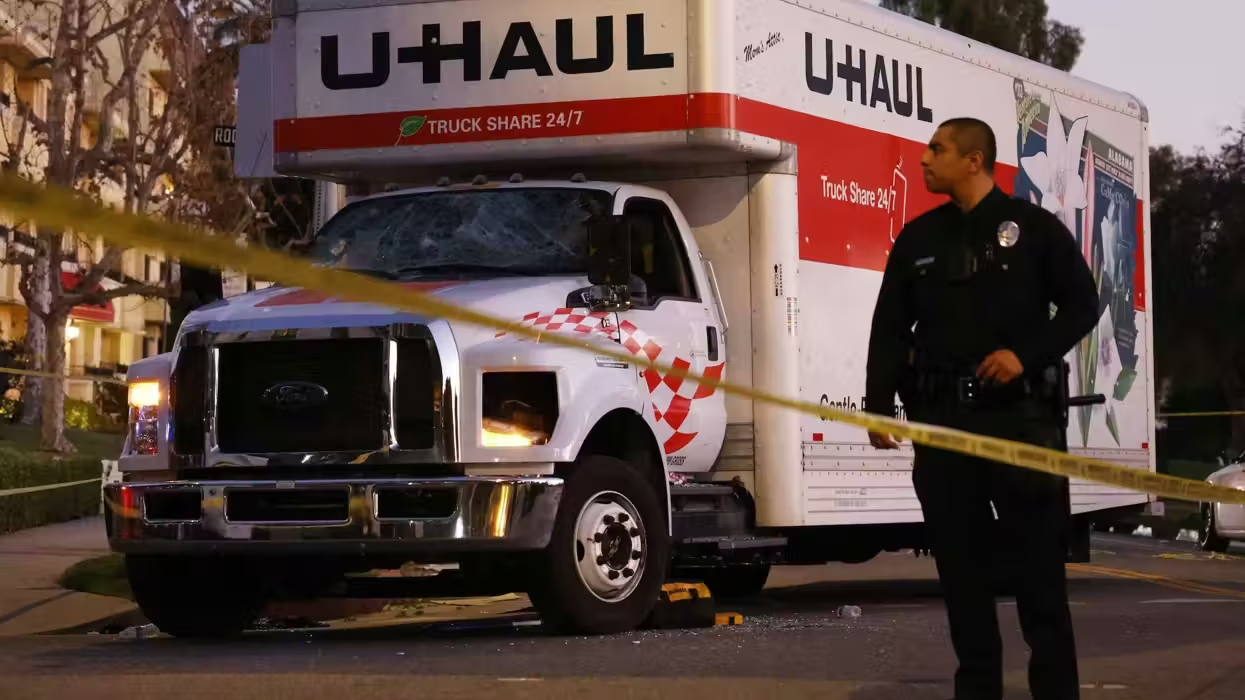A new court ruling may force more transparency out of the Environmental Protection Agency.
 Environmental Protection Agency Administrator Gina McCarthy . (AP)
Environmental Protection Agency Administrator Gina McCarthy . (AP)
That's the hope of Chris Horner, a senior fellow at the Competitive Enterprise Institute. He points out the EPA has been involved with false identification in e-mail accounts, conducted agency business on private e-mail accounts and is now being held accountable for destroying thousands of public records in the form of text messages.
Horner goes so far as to say EPA Administrator Gina McCarthy is "worse than Lois Lerner," the central figure in the Internal Revenue Service targeting scandal.
“I don't think any agency can compare with this agency,” Horner told TheBlaze, regarding the EPA. “For once, the EPA has been told it cannot do whatever it wants to do under the law. That is news.”
Horner was referring to a federal judge's ruling Thursday that called it “implausible” that EPA officials could be missing 5,000 text messages from government-issued mobile phones and not suspect the destruction of records. The decision allows a lawsuit to proceed seeking an injunction to prevent further document destruction by the agency.
The CEI, a free market think tank, sued the EPA last October in the U.S. District Court in the District of Columbia, alleging violation of the Freedom of Information Act and the Federal Records Act. The EPA filed a motion to dismiss the case, challenging plaintiff's legal standing.
U.S. District Judge Rosemary M. Collyer granted dismissal on some grounds, but sided with the think tank saying it could seek an injunction requiring the EPA to notify the National Archives of its destruction of text messages. She further ruled that the CEI can seek to compel the agency to preserve any text messages related to substantive decision-making.
“EPA responds that not all text messages necessarily constitute federal records, and therefore CEI has failed to state a claim for failure to notify the archivist,” Collyer wrote in her 19-page opinion. “But it is implausible that EPA administrators would not have suspected the destruction of any federal records with the removal of over 5,000 agency text messages."
EPA spokesman George Hull noted that the judge dismissed “all but one issue” raised by CEI.
“The court did not find any violation of laws by EPA, but has directed the clerk to schedule a status meeting with the parties to discuss next steps in the case,” Hull told TheBlaze.
The judge dismissed a motion from CEI that asked the court to rule that the EPA has a duty to preserve the text messages. The judge also granted the EPA's motion to dismiss the CEI demand that the agency show how it determined texts messages would not be preserved. She said these matters were beyond judicial review.
Nevertheless, the CEI feels it has what it wants in continuing the case, and possibly bringing accountability to the agency.
The text messages being sought are from McCarthy, which the agency claimed were private, despite coming from the administrator's government-issued phone. Before becoming administrator, McCarthy was an assistant administrator, in which one of her duties was ensuring records management laws were followed.
“Gina McCarthy is worse than Lois Lerner in one sense,” Horner said, referring to Lerner, whose e-mails went missing in the investigation of the IRS scandal.
Horner explained that Lerner might have been worse in targeting political enemies, but she didn't have a duty to maintain public records.
“Lois Lerner asked after the fact, are my messages archived, they said no, and she said perfect,” Horner said. “Gina McCarthy was in charge of records management. There could not be a worse offender.”
“EPA also contends that, 'even if certain text messages... constitute[d] federal records,' the agency was under no obligation to notify the archivist because 'the destruction of those messages would not have been unlawful if the ... employee properly preserved the text message in another format,'" the opinion continued, quoting the EPA argument.
The judge did not buy the EPA's argument.
“EPA’s arguments require more demanding scrutiny than is warranted at this stage in the proceedings," she wrote. "Accordingly, the court will deny EPA’s motion.”
The CEI filed a FOIA lawsuit in October 2013 specifically seeking text messages from EPA-issued personal data services of McCarthy and former EPA administrator Lisa Jackson. The FOIA requests for McCarthy dealt with 18 specific days that she testified to Congress on energy policy and was seen sending text messages.
—

 Environmental Protection Agency Administrator Gina McCarthy . (AP)
Environmental Protection Agency Administrator Gina McCarthy . (AP)






